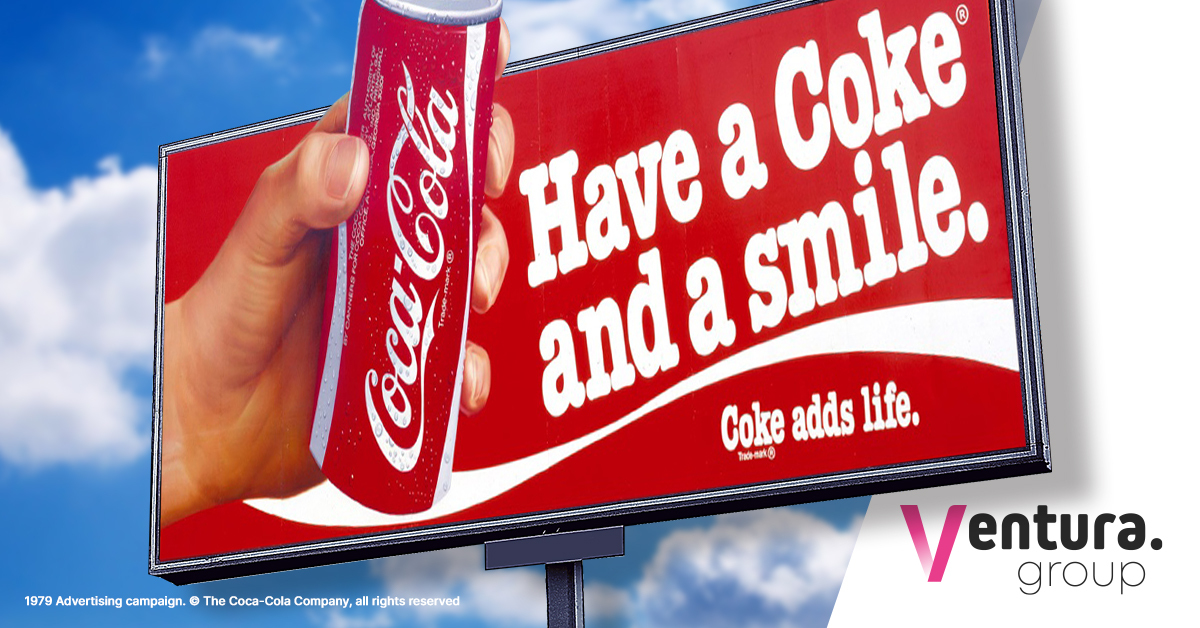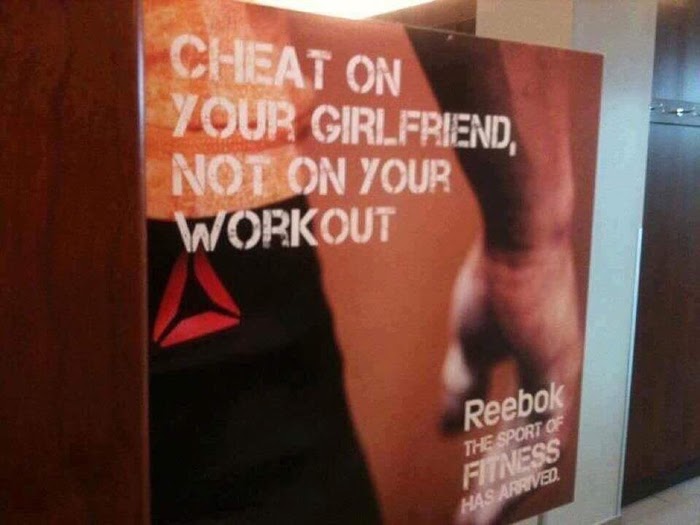

I’m lovin’ it.
Just do it.
Have it your way.
Every little helps.
Can you name those four brands based solely on the slogans above? Of course, you can.
Often, great slogans are more recognisable than the brands themselves. Some of the most iconic companies operating today were defined by brilliant slogans that have gone on to be used in movies, in stand-up comedy routines and viral sensations across the internet – thanks TikTok!
But how are these infamous phrases developed? Is it years of hard work on researching, sampling and refining or is it a simple throwaway comment made by Pete in the accounts team that just so happens to become marketing gold?
We’re going to take a look at the history of some of the most loved brand slogans (and in some cases, sounds), how they were initially created, developed and how they have evolved over time. Welcome to the Wrestlemania of brand slogans, the grandest stage of them all, the showcase of immortals where you can expect Hulk Slogan to walk away victorious!
…Slogan – like Hogan. The Wrestler? Because of the Wrestlemania reference. Did you get it? No? – I’ll leave it to the experts. On with the list!
If we’re going to start from the beginning, let’s look right back. On 29 January 1892 (a warm Thursday evening as it is recalled) Coca-Cola was founded in the city of Atlanta. The soft drink company has gone on to become one of the most profitable, iconic, and marketing-savvy brands in the world and, perhaps even more impressively, have managed to sustain that for over a century.
Whilst some will argue that long term brand success is about consistency and clear brand recognition, Coca-Cola is a great example of how you can continuously move with the times, try ground-breaking new marketing ideas to break the glass ceiling, all whilst maintaining their much loved and easily recognisable brand – this is no more evident than in the evolution of their slogans.
The first recorded Coca-Cola slogan was in 1900 where they went with the phrasing “For headache and exhaustion, drink Coca-Cola” – granted, it wasn’t their most snappy creation. However, in an era without the super-science health advice and supplements that we have today, the theory and reasoning behind this particular slogan were well thought out. It is widely reported that during this time in westernised countries, people were constantly looking for health and wellbeing advantages with the absence of modern resources. This is a brilliant example that is over a century old of a company tapping into the consumer market, common trends, and identifying areas that they can exploit to promote their product.
Coca-Cola is widely regarded as slogan pioneers and their consistency through the ages warrants that kind of accolade. Other notable slogans include “It’s the real thing” in 1969 – widely regarded as a swipe at rivals Pepsi who were trying their best to disrupt the Coca-Cola dominance. In 1971, Coca-Cola came out with their own jingle “I’d like to buy the world a Coke”. This absurdly catchy jingle was so successful that it was eventually turned into a full song by the band ‘Hilltop’ and has recorded over 4 million streams across YouTube. If you’d like this stuck in your head for the next 3 days (as it is mine), then feel free to have a listen by clicking here.
Since its founding in 1984, the British Eyewear brand Specsavers has consistently pushed the boundaries of what can be achieved by large-scale marketing campaigns. In the 90’s Specsavers were pushing the envelope with the biggest campaign in their history which involved physicist Stephen Hawking describing the wonders of the solar system, as seen through his Specsavers glasses. However, these big campaigns lacked longevity and got old quickly.
In 1999, Specsavers employed an in-house creative director who went by the name of Graham Daldry. Daldry was keen to lighten up the brand’s advertising. Daldry had a vision that involved a host of popular, nostalgia-filled characters ranging from Postman Pat and Thunderbirds to Mr.Men and Basil Fawlty – all of which were making light-hearted but costly mistakes because of their poor eyesight. The message was supposed to be memorable, fun, and build up enough excitement and engagement that the British audience were ‘excited’ for the next variation of the ad.
Ironically, the slogan was never supposed to be part of the campaign. The famous line “should’ve gone to Specsavers” was actually a throw away comment in the last line of ads that aired in 2002 prior to the new-look light hearted ads.
Following the rather bizarre kitchen ad, the line “should’ve gone to Specsavers” was being quoted all over the country. They might make you cringe when you hear them now (similar to the ‘slogan’ jokes up top) but at the time someone tripping over a curb and their pal smugly saying “should’ve gone to Specsavers mate” was the pinnacle of early noughties comedy…
The one-liner manager found its way into comedy sets from famous UK comics including Jim Davidson and Lee Evans. Although Daldry had accidentally written the line that rocketed Specsavers popularity to a whole new level, there was nothing accidental about how he exploited the popularity of the slogan and used it to transform the brand’s advertising campaigns. Daldry included the line in each of his ads moving forwards and quickly got to a place where no other dialog was required, just a short, sharp obvious eyesight dilemma followed swiftly by the infamous sentence to close out the ad.
Of course jingles and slogans aren’t quite the same, however they are just as impactful if not more so. Whether it is the McDonalds whistle, the cash-tap of Asda price or the “someone’s knocking at the door” postcode lottery song (enjoy singing that for the rest of the day), a memorable and catchy jingle can elevate a brand’s overall advertising performance 10-fold.
Jingles do something that a slogan can’t always do. They can build attachments, connect directly with people and allow people to connect with one another. Annoying, catchy jingles stick around in your head all day. You start humming or whistling the tune whilst waiting at the bus stop and the person next to you recognises it. “I’d kill for a McDonalds” they lean over to you and say. Hey presto – friends for life.
Maybe it doesn’t quite happen like that. But jingles tap into sentimental values that we all hold. Micky Flanagan dubbed this term “sing-along-alitus” when parents or grandparents recall a jingle from years ago when they see a particular product in the shop just so they can say “that’s one from our era”.
Whilst this is a silly comedy skit, it is a great example of how good jingles last forever. They provide a sense of longevity, that keeps brands relevant despite marketing strategies changing and the demand for more and more content constantly increasing.
Although they are excellent and we have spoken about some of the best slogans and jingles ever created, they are not easy to come up with.
There have been some rather weird slogans created by some of the world famous brands in the world. So, just for good measure, we thought it would be a good idea to include a couple of examples of where slogans have done more bad than good for the overall brand image.
We’re sure it was a good hearted attempt at humour, but considering the target market of the console was predominantly parents of younger boys, the less said about this one the better.
Now to native speakers in Uzbekistan, this snappy little slogan probably doesn’t sound quite as threatening as it does to us. However, the somewhat sinister phrase accompanied by the graphic of a plane being lost in the clouds didn’t translate particularly well with the English-speaking client base. Safe to say that this slogan didn’t last very long.

If this was Reebok’s attempt at unearthing their own ‘just do it’ moment like industry competitors Nike, it certainly did not work. I don’t think there is very much to analyse with this one. Was it memorable from Reekbok? Yes. Is any of it positive? No, not at all.

Of course, there are tons of great slogans (and even more bad ones) that we could have chosen from. We want to know what your favourite slogans and jingles are so we can add them to our Slogan case study – let us know by tweeting us or contacting us!